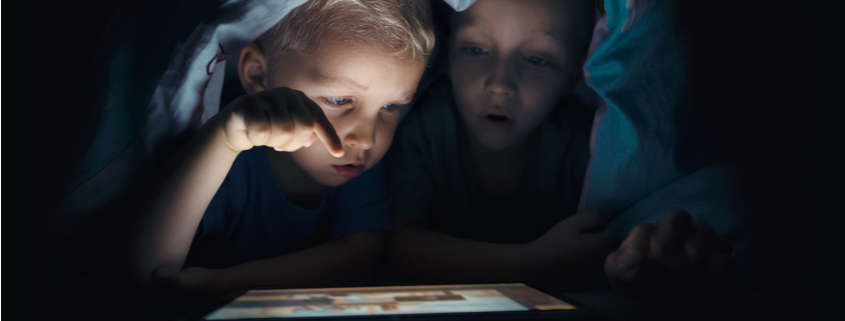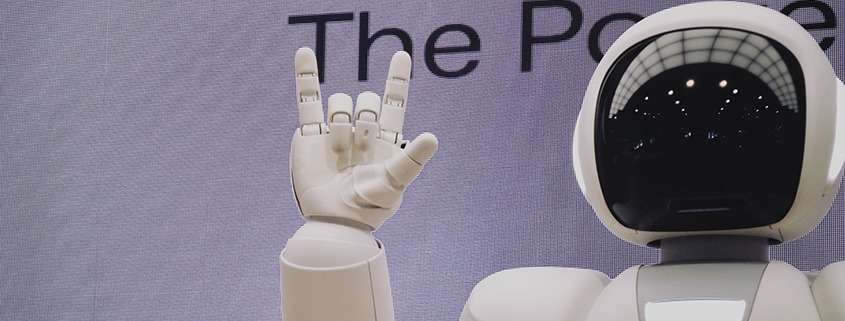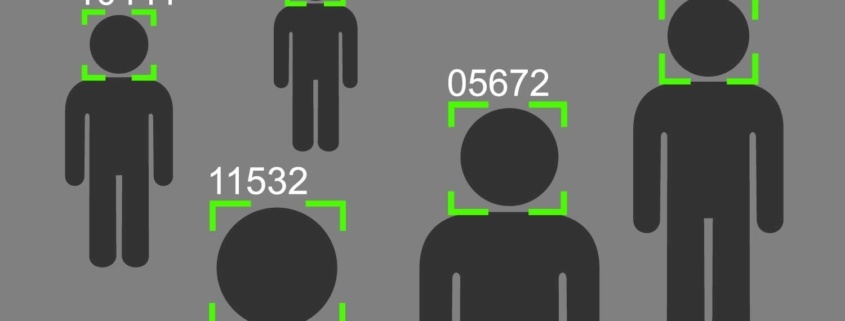Words can be an immense blessing but, when amplified through social media, also weapons of mass destruction to people and societies.
Posts
The Age Assurance (Minimum Standards) Bill
The Age Assurance (Minimum Standards) Bill had its second reading in the House of Lords on Friday 19 November. The Bishop of Oxford spoke in support of the bill. Read the text of his speech, or watch on Bishop Steven’s Facebook page.
My Lords, it is a real pleasure to follow the noble Lord, Lord Russell, and indeed every other noble Lord who has spoken in this debate. It has been extraordinary and very moving. I join other noble Lords in congratulating the noble Baroness, Lady Kidron, on securing this Second Reading and on her passionate and brilliant opening speech. With others, I thank and commend her for her tireless commitment to protecting children online. That she does so with such consistent grace and good humour, against the backdrop of glacially slow progress and revelations about both the variety and scale of harms to children, is no small achievement in itself.
One of my interests in this debate is the more than 280 church schools and the more than 50,000 children who are a precious part of my diocese of Oxford. A substantial proportion are at significant risk for want of this Bill. The primary responsibility of the Government is the protection of all their citizens and especially and particularly those unable to protect themselves. Future generations will, I think, look back on the first two decades of this century and our unregulated use of technology with deep pain and regret, as they reflect on the ways in which children are exposed to harmful material online, the damage which has followed, and will follow, and our tardiness in setting effective regulation in place. We will be judged in a similar way to those who exploited child labour in past generations.
Children are precious to God and to society, not as potential adults nor in the future tense but simply and completely in themselves. Each is of immense value. The evidence is clear that many are emerging from a digital childhood wounded and scarred in ways which are tragic but entirely preventable.
The Government make much of being pro-business in support of the emerging technologies of this fourth industrial revolution but, if they are equally serious about making the UK a safe country to be online, they really must do more to be pro-business in ways that protect children. Other noble Lords have movingly pointed out the many risks our children face whenever they venture online.
We now know with increasing certainty how it is not only other users, so-called bad actors, but many online service providers themselves—not least Facebook, or now Meta—that target children, their data extracted, their identities manipulated, their impulses exploited. It should be noted that many of these same service providers say they would welcome clear guidance and regulation from the Government, even while other businesses say they already possess the tools and opportunities to do this both safely and profitably.
The age-appropriate design code is a welcome and genuinely world-leading innovation, and the Government would do well to note—against the siren voices denying technical feasibility or fearing the balkanisation of the internet—that businesses, the service providers, have now found it easier to standardise their processes to the highest regulatory watermark globally in the interests of reducing costs and complexity. This bodes well for the principle-based and proportional approach to age verification that the Bill artfully encapsulates.
As others have asked, what possible reason can there be for further delay? If protecting children is good in and of itself; if business publicly expresses the need for clearer guidance on how to frame that protection; when business itself sees commercial opportunity in the tools for protection; when a regulator is now waiting in the wings; after government delay already threatens a lost generation—why is the Bill from the noble Baroness, Lady Kidron, not being eagerly and urgently adopted by the Government themselves, if that is indeed the case? I hope we will hear good news today. I eagerly await the Minister’s answer.
Further reading
- House of Lords library: Age Assurance (Minimum Standards) Bill [HL]
- The report But how do they know it is a child? published by the 5Rights Foundation, is an important contribution to the ongoing debate on age verification, estimation and assurance.
Watch Bishop Steven’s speech on his Facebook page
https://www.facebook.com/bishopofoxford/videos/337817904816379/
Edited by John Wyatt and Stephen N Williams
This article was first published in the Church Times.
Steven Croft reviews essays about AI
This is a book best read backwards. It is a lively collection of essays and a very welcome contribution to an emerging field, but the most valuable material is in Part 3.
When I first began to explore the world of artificial intelligence (AI), what began to keep me awake at night was the concept of general AI: the possibility of intelligent, conscious machines that may or may not develop at some point in the future. But that perspective changed very quickly. What then began to keep me awake (and still does) was the present reality of unregulated narrow AI: the deployment of massive computing power and big data across limited fields to make an enormous impact for good and ill.
Part 1 of The Robot Will See You Now introduces the whole field and explores the prospects of general AI through the lens of science fiction and cinema and what all of this means for our humanity. The essays in Part 2 develop a theological response, again focusing on what it means to be human, on personhood, and on models of human partnership with technology. Together, the chapters provide a good introduction to the subject; but it all feels a bit speculative and arm’s-length.
The real substance is Part 3, with the detailed analysis of five key areas where AI is being deployed now and where serious Christian and ethical thinking is needed. Four of these essays are excellent introductions and the heart of the book: Andrew Graystone on sextech; Nigel Cameron on jobs; John Wyatt on health and social care; and Nathan Mladin and Stephen Williams on surveillance capitalism. The fifth, by Andrzej Turkanik on the uses of AI in artistic creation, is good, but more speculative.
The essays are brief, and there are inevitable omissions. I was surprised that the chapter on the future of work didn’t have more on the gig economy and what happens when humans work for machines. I was surprised that the chapter on health and social care wasn’t more positive about the immense potential for good in AI for developing advanced diagnosis and treatment for life-threatening diseases, and for improving standards of health care across the majority world. It would have been good to see generally a more extended treatment of questions of bias and transparency in algorithmic decision-making.
But, overall, this is a welcome contribution to a rapidly developing field. I hope that the authors and editors will continue their dialogue on the vital and necessary interface between Christian ethics and AI.
Dr Steven Croft is the Bishop of Oxford. He is a member of the House of Lords Select Committee on AI and a founding board member of the Centre for Data Ethics and Innovation.
The Robot Will See You Now: Artificial intelligence and the Christian faith
John Wyatt and Stephen N Williams, editors
SPCK £14.99
(978-0-281-08435-7)
The Online Safety bill is a major step forward in preventing harm to children and vulnerable adults. But legislation is needed urgently.
The ethical complexity of new technologies can seem overwhelming. The Bishop of Oxford offers five key questions for keeping ethics at the centre of AI strategy.
Bishop Steven urges the government to consider implementing a Code of Practice for both Hate Crime and wider legal harms.
The ethical questions surrounding the use of AI and data are manifold and large. Sooner or later they all lead back to the question “what does it mean to be a fully human person in a flourishing society in the 21st Century…”
Fifteen years ago, Facebook, Twitter and YouTube didn’t exist. Today, 67% of people in the UK are active users of at least one of them, and we now spend almost two hours each day on social media. Yet society is increasingly fearful of the risks of fake news and harmful content and distrustful of the very platforms that consume so much of our time.
Our lives are irreversibly online, lived with ever decreasing levels of privacy and hyperstimulated to a relentless pace. Few of us have stopped to properly consider what it means to live well in this age, but as Christians, we have an essential part to play in the shape of online society.
This week the national Church launched a Digital Charter, which includes guidelines and a pledge that anyone can add their name to as part of a personal commitment to making social media a more positive place. I’ve signed up to the Charter, and I hope you will too.
As a Diocese, we’ve been spending time exploring what it means to be a more Christ-like Church for the sake of God’s world. It’s a journey that started three years ago as we studied the Beatitudes together. Recently I’ve begun to ponder what those eight beautiful qualities might mean for social media and our online lives.
Blessed are the poor in spirit, for theirs is the kingdom of heaven.
I will remember that my identity comes from being made and loved by God, not from my online profile.Blessed are those who mourn, for they will be comforted This world is full of grief and suffering.
I will tread softly and post with gentleness and compassion.Blessed are the meek, for they will inherit the earth.
I will not boast or brag online, nor will I pull others down.Blessed are those who hunger and thirst for righteousness, for they will be filled.
There are many wrongs to be righted. I will not be afraid to name them and look for justice in the world.Blessed are the merciful, for they will receive mercy.
I will not judge others but be generous online. I will be conscious of my own failings.Blessed are the pure in heart, for they will see God.
I will be truthful and honest, and I will not pretend to be what I am not.Blessed are the peacemakers, for they will be called children of God
I will seek to reconcile those of different views with imagination and good humour.Blessed are those who are persecuted for righteousness’ sake, for theirs is the kingdom of heaven.
I will not add to the store of hate in the world, but I will try to be courageous in standing up for what is right and true.
You can download a card (colour version | black and white version) to keep near your phone and tablet and share this social media graphic online.
Advances in technology have brought sharp ethical dilemmas and deeper questions of human identity. There are important debates to be had about the exploitation of our personal data, along with the threats (and benefits) of AI. These will take time and will require legislation, but we can also do something right now: let us each play our part in making social media kinder.
+Steven
June 2019
Further reading:
- Explore UK digital trends
- Sign the Digital Charter
- Thou shalt keep thy fad diet to thyself
- Five ways to stop feeling overwhelmed by the news
#CofECharter
The Bishop of Oxford, the Rt Revd Steven Croft, spoke in a debate in the House of Lords this afternoon about protecting and representing the interests of future generations in policy making. Bishop Steven spoke on climate chaos, the rise of artificial intelligence and the impact of both on young people’s mental health.
Join Bishop Steven at the Mass Lobby of MPs on 26 June. Full details here: https://www.theclimatecoalition.org/thetimeisnow
“My Lords, I warmly welcome this debate and want to express my appreciation to Lord Bird for his intiative and his proposals. Lord Bird has set out very well the case for a Select Committee and for a Future Generations Commissioner.
The moral case has shifted in recent years. In the Anthropocene era, humanity’s effect on the environment means that that the interests not just of the next generation but every generation beyond that need to be protected in our policy making.
The world is living through deepening environmental catastrophe. The impact of climate change is already severe. It will become worse with each decade and each generation. The world is currently heading for average global warming of 2 degrees and more by 2050. Global net carbon emissions continue to rise. The risks of unforeseen and catastrophic compound effects on the environment increase with every year.
My Lords the two biblical images of hell are a burning planet too hot to sustain life and a rubbish dump. We are in danger of bequeathing both to our children and grandchildren. It is hugely irresponsible – to take short term decisions in the interests of only of the current generation.
I warmly welcome the government’s historic commitment to a net zero carbon economy by 2050 and I congratulate the Prime Minister on naming this goal as a vital part of her legacy. I warmly welcome the government’s international leadership and the bid to host the vital 2020 Climate Summit. These goals need support across Parliament. The voice of those future generations needs to be strengthened in that debate.
Future generations also need to be protected in the rapid pace of technological change. Here I speak as a Board Member of the Centre for Data Ethics and Innovation. The pace of change and the effects of technology on the mental health of the young are significant.
I warmly commend the Information Commissioner’s Office recent guidelines on Age Appropriate Design, which aim to protect the most vulnerable from the predatory big tech companies. I warmly commend the government for bringing forward the Online Harms White Paper. I hope both will be turning points in the development of new technologies which protect rather than exploit the most vulnerable.
We will need in the coming years agility and public leadership in responding to new technologies and data in the areas of health, education, the labour market, smart cities, algorithmic decision making, facial recognition and the regulation of the mining of personal information for commercial gain. The interests of future generations need a voice.
Finally these proposals are so helpful in that they address a decrease in social cohesion across the generations. The APPG on Social Cohesion recently published a comprehensive study on intergenerational connection.
The generations have become increasingly segregated. We can allow that process of drift to continue with serious social consequences. Or we can exercise leadership to build social capital between the generations. Families and faith communities have a vital role to play and are part of the glue which binds generations together. Local government has a role as does business and the third sector. But national government must play its part.
The proposals to give a structured voice to the interests of future generations is warmly to be welcomed. I warmly support Lord Bird’s proposals and hope they will attract the support of the whole House.”
Steven Croft
- Watch Bishop Steven speaking in the debate and follow Bishop Steven on Facebook










